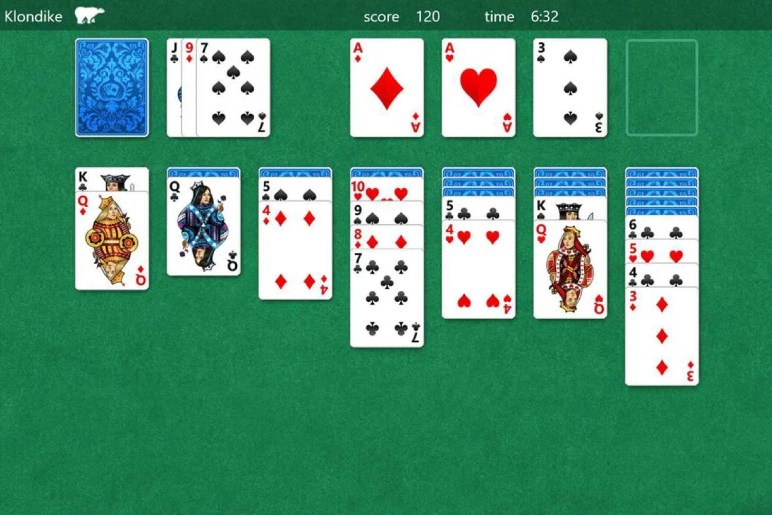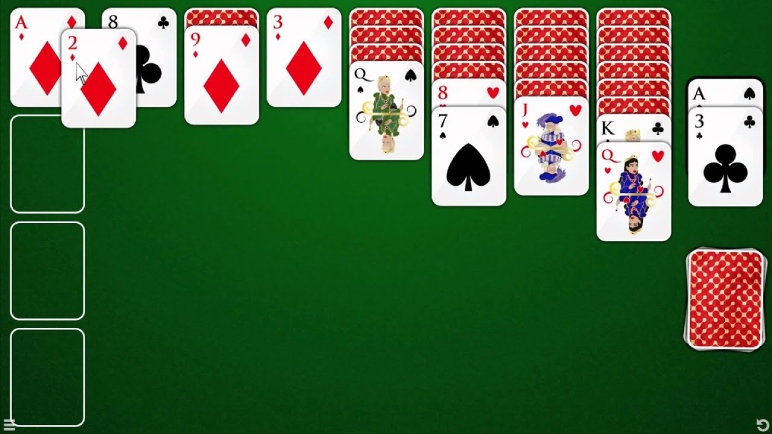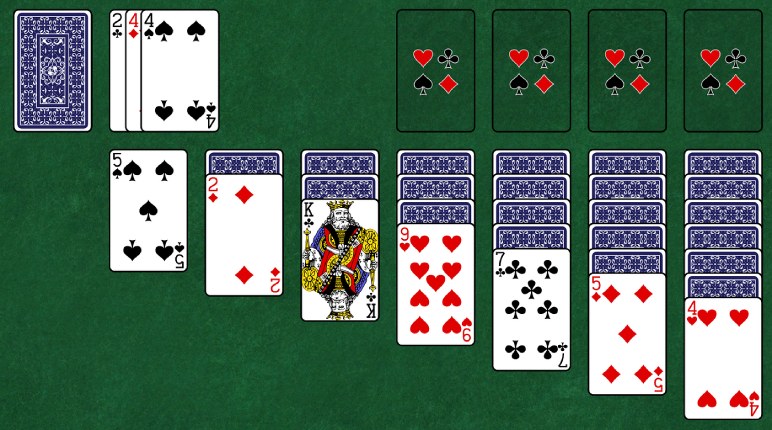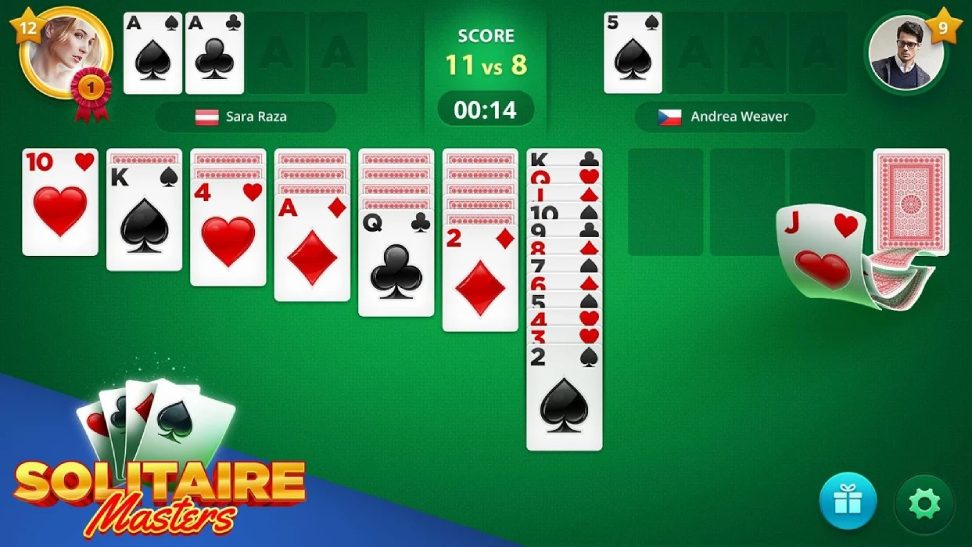Solitaire, a timeless single-player card game, has captured the hearts and minds of countless players worldwide for centuries. Often regarded as a simple pastime, Solitaire harbors a depth of strategy and skill that has given rise to a select group of individuals known as Solitaire Masters. In this article, we will delve into the intriguing world of Solitaire Masters, exploring the game’s history, strategies, and the remarkable individuals who have achieved true mastery.
A Brief History of Solitaire

The origins of Solitaire are shrouded in history, making it challenging to pinpoint its exact birthplace and creator. The game’s name itself is derived from the French word “solitaire,” meaning “solitary” or “alone,” reflecting its nature as a single-player endeavor. It is believed to have been introduced in France during the 18th century and eventually spread throughout Europe, becoming popular among the French nobility. As Solitaire continued to evolve, it made its way to North America.
In the United States, Solitaire gained widespread popularity during the 19th century, particularly during the Gold Rush era. Miners and settlers found solace and entertainment in the game, which offered a welcome distraction from the harsh realities of life in the wild west. Over time, Solitaire became a staple in American households and found a permanent place in modern culture when it was included as a built-in game in Microsoft Windows in 1990.
The Basics of Solitaire

Solitaire is traditionally played with a standard deck of 52 playing cards, though variations exist. The primary objective of the game is to move all the cards from the tableau (the main playing area) to the foundation piles, where they are arranged in ascending order by suit, starting with the Ace and culminating with the King. The tableau consists of seven columns of cards, with the top card in each column facing up and the rest facing down. Additionally, there is a draw pile and a discard pile.
Players are allowed to move cards within the tableau in descending order, alternated by colors. For example, a red 6 can be placed on a black 7, or a black Queen can be moved onto a red King. Sequences of cards in descending order and the same suit can also be moved together. The draw pile allows players to flip one card at a time, with the goal of strategically moving cards from the tableau to the foundation piles while revealing and utilizing as many face-down cards as possible.
Strategies for Success

While Solitaire may appear to be a game of chance, its depth becomes apparent when you explore the strategies employed by those aiming for mastery. Here are some essential tactics and strategies used by Solitaire Masters:
- Uncover Face-Down Cards: The foremost priority in Solitaire is to reveal as many face-down cards as possible. This allows players to access more cards and make more informed decisions. Start by uncovering cards with fewer face-down cards on top of them.
- Create Empty Columns: Establishing empty columns within the tableau is a key strategy. Empty columns provide space to temporarily shift cards around, increasing your options for building foundation piles. To create an empty column, move all the cards within a column to another column.
- Build Foundation Piles Strategically: Deliberate planning is crucial when constructing the foundation piles. Often, it is best to focus on one suit at a time, beginning with the suit that has the most accessible cards.
- Avoid Early King Moves: Generally, it’s wise not to move Kings to the foundation piles too early in the game, as they can block columns and limit maneuverability.
- Plan Ahead: Thinking several moves ahead and anticipating the long-term consequences of each move is vital. Carefully analyze the board before making decisions.
- Utilize Reversed Sequences: When you have a sequence of cards in descending order and opposite colors (e.g., black 9, red 8, black 7), use this sequence strategically. Move the entire sequence to another column to access the cards underneath.
- Exercise Patience: Solitaire can be a game that requires patience. Sometimes, it is necessary to make seemingly suboptimal moves now to set up better moves in the future. Take your time and consider your options carefully.
Solitaire Masters: The Epitome of Skill
Becoming a Solitaire Master is a significant achievement that demands not only a deep understanding of the game’s rules and strategies but also adaptability and critical thinking. Solitaire Masters are recognized for their remarkable skills and their ability to consistently triumph in the game.
One of the most renowned Solitaire Masters is Thomas Warfield, the creator of Pretty Good Solitaire, a popular computer program featuring a wide array of Solitaire games. Warfield’s expertise in Solitaire has made him a respected figure in the Solitaire community, and his contributions to the game’s digital realm have solidified his reputation.
In addition to Thomas Warfield, countless other individuals have attained Solitaire mastery through dedicated practice and study. Some participate in online Solitaire tournaments, showcasing their skills and competing for the coveted title of Solitaire Champion. These competitions can be intense, with players from around the world testing their abilities against one another in a display of Solitaire prowess.
Benefits of Playing Solitaire
Solitaire offers more than just entertainment; it provides several benefits that make it a favored pastime for many:
- Cognitive Enhancement: Playing Solitaire can enhance cognitive abilities such as memory, concentration, and problem-solving. It necessitates strategic thinking and planning, stimulating mental faculties.
- Stress Reduction: Solitaire offers a tranquil way to relax and alleviate stress. Its solitary nature allows players to focus their thoughts and find solace in the midst of life’s pressures.
- Versatile Entertainment: Solitaire can be played almost anywhere with a standard deck of cards or on a computer or mobile device. It is a portable and accessible form of amusement.
- Self-Improvement: As players refine their Solitaire skills, they can track their progress and strive for self-improvement. The satisfaction of conquering a challenging game is a reward in itself.
Conclusion
Solitaire may appear deceptively simple, yet it harbors a world of complexity and strategy that has attracted dedicated enthusiasts and Solitaire Masters. These individuals, like Thomas Warfield and others, have devoted themselves to honing their skills and achieving excellence in this timeless card game. Whether you are a casual player or aspire to become a Solitaire Master, remember that success in Solitaire, as in life, often rewards those who plan meticulously, think ahead, and persevere. The next time you engage in a game of Solitaire, take a moment to appreciate the artistry and mastery that lie beneath its surface, waiting to be uncovered.
Read Also:
- How To Start Blogging?
- How To Start A Virtual Assistant Business
- How To Start A Mobile App Development Company?
- Andrew Tate Net Worth | How Much Is Andrew Tate Net Worth?


